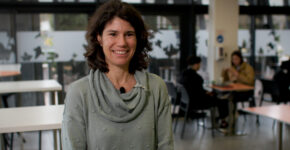From pesticides to PFAS: the challenges posed by these new classes of chemicals for research and regulatory implementation in California
This event has passed!
Focus of the ExposUM ongoing seminar: "Interaction between research, policy, and social actors."
Pesticides or persistent chemicals (PFAS) are often presented as posing less of a toxicological hazard and being less persistent in the environment than older generations of chemicals. However, recent research has revealed that new-generation pesticides, such as neonicotinoids, designed to target the receptor of certain insects (nAChR), have effects on non-target species. Similarly, short-chain PFAS have been promoted as safer alternatives to long-chain PFAS, which are recognized as toxic, ubiquitous, and persistent in the environment. These short-chain PFAS also exhibit remarkable biological and toxicological activities. In this presentation, we will review some of the emerging toxicological evidence on these two types of chemicals and discuss the challenges and limitations of their regulation, particularly in the California context.
Newer generations of chemicals such as pesticides or forever chemicals (PFAS) are often touted as toxicologically safer with less environmental persistence. However, emerging research evidence revealed that newer generations pesticides such as neonicotinoids still display off-target effects despite being engineered to target the insect nAChR receptor. Similarly, shorter chain PFAS have been promoted as safer alternatives to the toxic, ubiquitous, and persistent longer-chain, legacy PFAS. However, these shorter chain PFAS also show remarkable biological and toxicological activity casting doubt on the validity of proposed regulation of PFAS by chemical class. In this presentation, we will review some of the emerging toxicological evidence on these two types of chemicals and discuss the challenges and limits of their regulation, specifically within the context of California.
Speaker:
Patrick Allard, Mak'it guest, Professor at the Institute for Society and Genetics at the University of California, Los Angeles (UCLA), researcher in genetics, epigenetics, developmental biology, and environmental health.
Event organized as part of the ExposUM Institute, in collaboration with Mak'it, with the support of MSH-SUD.
Receive a weekly summary of the UM agenda
* By entering your email address, you agree to receive a weekly summary of the UM calendar by email and acknowledge that you have read ourprivacy policy. You can unsubscribe at any time using the unsubscribe linkor by contacting us by email.
